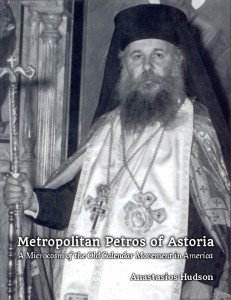Righteousness Then and Now
“Believest thou not that I am in the Father, and the Father in me? the words that I speak unto you I speak not of myself: but the Father that dwelleth in me, he doeth the works.” John 14:10.
Dear Friends in Christ,
In this passage from the Gospel of John, which we read at Saturday’s liturgy, Christ speaks of the unity between Himself and the Father. What is interesting to note is the play on words; “The words I speak” are contrasted with the Father who “doeth the works.”
For Christ, and by extension for all those who follow Him, there is no distinction between one’s words and one’s works. If we profess to have a faith in Christ, we will demonstrate the works that prove it. Christ continues: “Verily, verily, I say unto you, He that believeth on me, the works that I do shall he do also; and greater works than these shall he do; because I go unto my Father” (verse 12).
Is Christ speaking symbolically? The Reading from Acts (20:7-12) for Saturday gives a clue. In it, a young man named Eutychus is listening to St. Paul speaking, and falls from a window and dies. St. Paul goes to him, and raises him from the dead. Only God can raise people from the dead, yet we see St. Paul doing it here. In other places, St. Peter also raises the dead. We can see in the book of Acts, then, that the very miracles that Christ performed were then given to his Apostles.
We might wonder if such things happen even in our time. The answer is yes, with a caveat. Christ gave the Apostles various blessings to perform miracles, but in a direct proportion to their level of faithfulness. If we recall in the Gospels, the Apostles at one point could not cast out certain demons. By the time Acts was written, they were raising the dead. A certain spiritual progress had occurred. This was due to the Gift of the Holy Spirit at Pentecost, when the Spirit of God descended like tongues of fire. The Apostles, who had been preparing themselves for this gift, were ready to receive it.
When we are baptized and chrismated with the Holy Oil afterwards, we too are given the gift of the Holy Spirit. However, God does not force us to do anything against our will, and so if we are not prepared for the gift, and do not develop it through a life of “practicing what we preach,” God will respect our decision and pull away. If we continue to develop spiritually, however, he will give us spiritual gifts to be used for his glorification.
In our modern times, we can point to at least two people to whom God chose to give spiritual gifts. St. John Maximovitch was a Russian bishop who lead his flock across the world as communism spread, settling eventually with many of them in San Francisco. He was a wonderworker who healed many people. Elder Ieronymos was a monastic priest who lived on the island of Aegina in Greece. He lived a life of simplicity and comforted thousands of people through their troubled life. Both of these saints were given extreme discernment and were able to diagnose people’s spiritual ailments and sometimes even physically cure people. They lived in different places, but are both contemporary, dying in the 1960’s. When one reads their lives, they see the same kind of spiritual gifts that the Apostles possessed. God does not want us to look back to the past only for inspiration; he calls men and women in each generation to become holy and minister. Not everyone is given such extreme gifts, but God has a plan for each of us, and by fulfilling it, we will not only ourselves be saved, but we will save many around us.
Let us follow Christ’s words and produce the same works; let our lives become like that of St. Paul, St. John, and Elder Ieronymos. He has prepared the gift, but we have to step forward and receive it willingly.
In Christ,
Fr Anastasios


